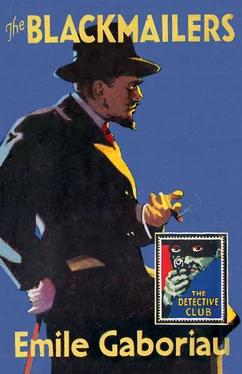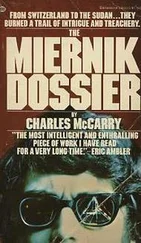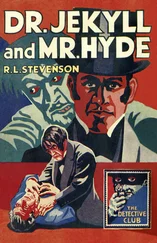‘I know a hotel where with an introduction from me you would be treated like a little queen, though it is not so luxurious as here.’
‘Where is it?’
‘On the other side of the water, the Hôtel du Grand-Archange , Quai Saint-Michel, kept by Madame Alexandré.
Nina never took long to make up her mind.
‘Here is the ink,’ she said, ‘write the introduction.’
He had finished in a moment.
‘With these three lines, lady,’ he said, ‘you will be well looked after.’
‘Very well! Now I must let Cavaillon know my address. He should have brought the letter—’
‘He could not come,’ the detective interrupted, ‘but I am going to see him and will let him know your address.
Madame Gypsy was about to send for a carriage, when Fanferlot volunteered to procure one for her. He stopped one as it was passing and instructed the driver to wait for a little dark lady, and if she ordered him to drive to the Quai Saint-Michel he was to crack his whip; but if she gave him any other address he was to get down from his box as if to put one of the traces right.
The detective crossed the road, entered a wine-shop opposite, and a minute afterwards the loud cracking of a whip disturbed the quiet street. Madame Nina had gone to the Grand-Archange .
The detective rubbed his hands with glee.
CHAPTER IV CONTENTS COVER TITLE PAGE COPYRIGHT INTRODUCTION CHAPTER I CHAPTER II CHAPTER III CHAPTER IV CHAPTER V CHAPTER VI CHAPTER VII CHAPTER VIII CHAPTER IX CHAPTER X CHAPTER XI CHAPTER XII CHAPTER XIII CHAPTER XIV CHAPTER XV CHAPTER XVI CHAPTER XVII CHAPTER XVIII CHAPTER XIX CHAPTER XX CHAPTER XXI CHAPTER XXII CHAPTER XXIII CHAPTER XXIV CHAPTER XXV ABOUT THE BOOK THE DETECTIVE STORY CLUB ABOUT THE PUBLISHER
WHILE Madame Nina Gypsy was on her way to the Grand-Archange , Prosper Bertomy was at the police station.
He was kept waiting there for two hours, during which time he talked to the two policemen in whose charge he was. His expression never varied, his face was like marble. At midday he sent for lunch from a neighbouring restaurant, ate it with a good appetite, and drank almost a whole bottle of wine.
During this time ten other officers at least came to look at him, and they all expressed their views in similar terms. They said:
‘He is a stubborn fellow.’
When he was told that a carriage was waiting, he got up quickly, asked permission to light a cigar, and went downstairs. At the door he bought a buttonhole from a flower girl who wished him good luck.
He thanked her and got into the carriage which drove along the Rue Montmartre.
It was a lovely day, and he remarked to his guardians:
‘It is very strange, but I never felt so much like a walk before.’
One of them replied, ‘I can quite believe that.’
At the clerk’s office, while the entries were being made in the gaol book, Prosper answered the questions with disdainful hauteur. But when he was told to empty his pockets, a gleam of indignation shot from his eyes. He would perhaps have been subjected to further indignities but for the intervention of an oldish man of distinguished appearance, wearing a white necktie and gold-rimmed spectacles, who was warming himself at a stove and appeared quite at home. This was a noted member of the detective force, M. Lecoq, whose eyes had been intently fixed upon the cashier, and who had displayed considerable surprise at his entrance.
After the usual formalities had been completed the cashier was removed to a cell, where as soon as he was alone he burst into tears. His pent-up anger got beyond control; he shouted, cursed, blasphemed and beat the walls with his fists.
Prosper Bertomy was not what he appeared to be, he had ardent passions and a fiery temperament. One day at the age of twenty-four he was seized with ambition and a desire to be like the rich men he saw around him. He studied the careers of these financiers and discovered that at first they were worse off than he was, but that by energy, intelligence and audacity they had succeeded.
He swore to imitate them, and from that time he silenced his instincts and reformed not his character, but its outward appearance.
His efforts had not been wasted. Those who knew him said he was a coming man. But here he was in prison, and even if he were not guilty he would be marked as a suspected man.
The following morning—he had just gone to sleep after a sleepless night—he was awakened for his examination.
As the warder conducted him, he said:
‘You are fortunate; you have to deal with a good brave man.’
He was right. M. Patrigent possessed in a remarkable degree all the qualities necessary for a magistrate. He was keen, firm, unbiased, neither too lenient nor too severe, but a man of inexhaustible patience. This was the man before whom Prosper had to appear.
After walking a considerable distance the warder and his charge entered a long narrow gallery in which were several numbered doors, each of which admitted to the presence of a magistrate.
‘Here,’ the warder said, ‘your fate will be decided.’
The cashier and his guardian sat down upon an oak bench in the gallery which had already numerous occupants, to wait their turn. Groups of witnesses and gendarmes stood talking in low tones in the gallery, and at short intervals a door opened and an usher called out a name or number.
At last the usher called ‘Prosper Bertomy!’
The cashier on leaving the dark gallery suddenly found himself almost blinded by the light from the window of the courtroom.
The courtroom had nothing striking about it. It contained a large desk at which the magistrate sat with his face in shadow and with the light shining full in the faces of the accused and the witness. On his right was his clerk.
Prosper’s attention was, however, fixed upon the magistrate’s face, and he soon realized that the warder was right, for he had an attractive and reassuring face.
‘Take a chair,’ he said to Prosper, who was favourably impressed by this attention and took it as a good omen.
M. Patrigent made a sign to the clerk and said:
‘We are ready to begin, Sigault.’
Turning to Prosper, he asked:
‘What is your name?’
‘Auguste Prosper Bertomy, sir.’
‘How old are you?’
‘I shall be thirty-five on the fifth of May.’
‘What is your occupation?’
‘I am, or rather I was the cashier at the André Fauvel Bank.’
The magistrate stopped to consult his papers and then asked:
‘Where do you live?’
‘At 39, Rue Chaptal for the last four years. Before that I lived at No. 7, Boulevard des Bategnolles.’
‘Where were you born?’
‘At Beaucaire, in the Department du Gard.’
‘Are your parents alive?’
‘I lost my mother two years ago, but my father is still alive.’
‘Does he live in Paris?’
‘No, sir, he lives at Beaucaire with my sister, who married an engineer of the Midi Canal.’
Prosper replied to the last question in a troubled voice. There are times in a man’s life when the remembrance of his relations consoles him, but there are also times when he wishes to be alone in the world.
M. Patrigent noted his emotion and continued:
‘What is your father’s profession?’
‘He was, sir, employed on the Midi Canal; now he has retired.’
‘You are accused of stealing 350,000 francs from your employer. What have you to say?’
‘I am innocent, sir; I swear I am innocent!’
‘I hope so,’ M. Patrigent said, ‘and you can count on my assistance in proving your innocence. Have you any facts to mention in your defence?’
‘Sir, what can I say? I can only invoke my whole life.’
The magistrate interrupted. ‘Let us be precise; the robbery was committed in such a way that suspicion can only rest upon M. Fauvel and you. Can you throw suspicion on anyone else?’
Читать дальше












